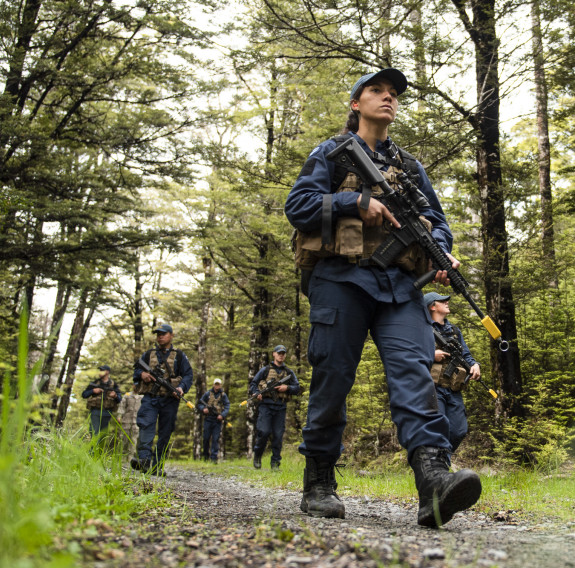Mātauranga me te whakangungu
Education & training
It takes a lot of skills and training to do the things we do. From medical to engineering, navigation to combat, intelligence to flying an aircraft, the range of trades in the Air Force is diverse.
Whatever role our people hold, we need them to be highly trained, because they may have to do their job in adverse conditions, at a moment’s notice. At these times, we need experts. We need our people to excel, to be the best they can be.
Our people handle some of the most advanced technologies in the world. They are provided with the training, education, tools, and equipment necessary to become fully effective in their field.
Recruit and officer training courses are conducted at RNZAF Base Woodbourne, near Blenheim. During this initial training, personnel get to grips with the ethos and values embedded in Air Force culture and become familiar with listening to details, following instructions, and learning how to work as a team. Within those teams, recruits get used to working quickly, with urgency, in order to complete tasks. They learn basic skills like weapon handling, first aid, and drill. This is all part of developing an ability to perform tasks within a unit or squadron in tough situations, under the direction of a leader, and in a team with people they can rely on.
After basic training, personnel move on to develop expertise in a chosen field. They receive specialised education through courses, on-the-job training, and sponsored tertiary study. Sponsored part-time or full-time study is available to personnel through our Voluntary Education Study Assistance (VESA) scheme. This provides financial assistance to undertake part-time study toward a Level 4 or higher qualification on the New Zealand Qualifications Framework. Our people can apply for this scheme after completing one year of military service.
The way we train our personnel has benefits outside the Air Force. The qualifications our personnel achieve, plus the life and employment skills gained during their career in the Air Force, are highly sought after in the civilian world. And the skills, character, and resilience that are developed in the Air Force are valuable to the private and public sectors.
